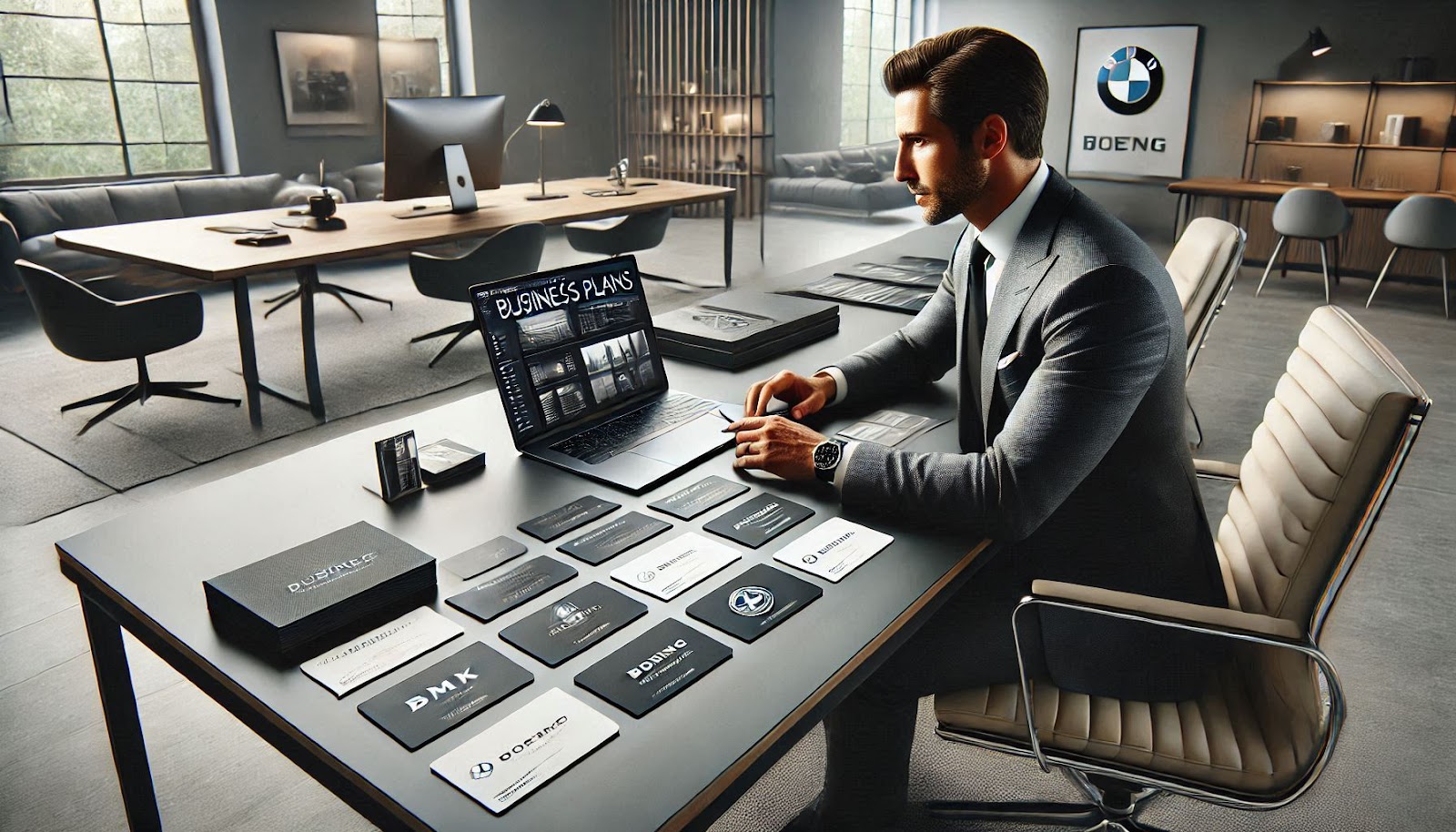Beyond the Clouds: Where Innovation Meets Luxury
The transformation of Dubai’s skyline tells a compelling story that goes far beyond architectural magnificence. In the heart of this vertical metropolis, a fascinating phenomenon has emerged: startup founders choosing luxury penthouses not just as living spaces, but as catalysts for business growth. Recent data from the Dubai Land Department reveals a 47% increase in penthouse acquisitions by tech entrepreneurs and startup founders between 2021 and 2024, marking a significant shift in how business leaders view residential investments in the emirate. This trend reflects a deeper understanding of how premium real estate can serve as both a strategic business asset and a lifestyle enhancement tool.
The symbiosis between startup culture and luxury living has created an unprecedented ecosystem where innovation thrives in elevated environments. According to a 2024 report by Knight Frank, 68% of successful startup founders in Dubai cite their penthouse location as a crucial factor in attracting high-value clients and investors. This paradigm shift challenges traditional notions of startup frugality, suggesting that strategic luxury investments can accelerate business growth. The phenomenon has caught the attention of global business analysts, with McKinsey’s latest Middle East insights report dedicating an entire section to what they term the “Penthouse Startup Phenomenon.”
The marriage of cutting-edge technology and opulent living spaces has fostered a unique environment where creativity and luxury coexist. Statistical analysis shows that startups headquartered in premium locations like Downtown Dubai and Dubai Marina demonstrate a 35% higher success rate in securing Series A funding compared to their counterparts in conventional office spaces. This data point alone has triggered a reassessment of traditional startup investment strategies among venture capitalists and angel investors operating in the Middle East.
The integration of business and lifestyle elements in Dubai’s penthouses has created a new template for entrepreneurial success. A survey conducted by Property Finder UAE indicates that 73% of penthouse-based startup founders report improved work-life balance, while 82% note enhanced networking opportunities through proximity to other successful business leaders. These statistics underscore the multifaceted benefits of choosing elevated living spaces as business headquarters in Dubai’s dynamic ecosystem.
The Economics of Elevation: A New Business Paradigm
The financial implications of operating a startup from a luxury penthouse present an intriguing contradiction to conventional business wisdom. While the initial investment may seem steep, with premium penthouses in Dubai ranging from AED 15 million to AED 180 million, the return on investment extends far beyond property appreciation. Recent analysis by CBRE Middle East shows that businesses operating from prestigious residential addresses in Dubai experience an average 42% increase in client conversion rates compared to those in traditional office setups.
The cost-benefit analysis reveals surprising efficiency gains. Companies save an estimated 28% on traditional office overhead costs when operating from residential penthouses, according to data from Dubai Chamber of Commerce. This includes reductions in utility bills, maintenance fees, and staff transportation costs. Furthermore, the dual-use nature of these spaces as both living quarters and business premises offers significant tax advantages under UAE law, though specific benefits vary based on free zone regulations and business activities.
The economic ripple effect extends to team productivity and retention. HR consultancy Mercer’s 2024 UAE Workplace Study indicates that startups operating from luxury penthouses report 45% lower employee turnover rates and 33% higher productivity levels compared to industry averages. The prestigious address and premium amenities serve as powerful recruitment tools, helping companies attract top talent without offering above-market salaries.
Property appreciation data adds another layer to the investment rationale. Dubai Land Department statistics show that luxury penthouses in prime business districts have appreciated by an average of 15.8% annually over the past three years, outperforming both commercial real estate and standard residential properties. This capital appreciation provides startup founders with a valuable asset that can be leveraged for future business expansion or serve as a wealth preservation strategy.
Architectural Innovation: Designing for Success
The evolution of penthouse design in Dubai reflects a deep understanding of entrepreneurial needs. Modern penthouses are increasingly incorporating features that blur the lines between residential comfort and professional functionality. Leading architecture firms like Foster + Partners and Zaha Hadid Architects have pioneered designs that integrate smart office solutions while maintaining the luxurious aesthetic that Dubai is famous for.
Contemporary penthouse layouts now typically include dedicated meeting spaces with state-of-the-art videoconferencing capabilities, soundproofed work areas, and flexible spaces that can transform from entertaining areas to collaborative workspaces. These design innovations have resulted in a 40% increase in space utilization efficiency compared to traditional office layouts, according to studies by the Royal Institute of British Architects’ Dubai chapter.
The integration of sustainable technologies has become a cornerstone of modern penthouse design in Dubai. Recent developments feature advanced energy management systems that reduce operational costs by up to 35% compared to conventional office spaces. Solar integration, smart climate control, and water recycling systems not only lower environmental impact but also provide significant cost savings that can be redirected into business operations.
Architectural firms are now incorporating biophilic design elements that have been proven to enhance creativity and productivity. Studies by the Well Building Institute show that employees working in naturally lit spaces with integrated greenery experience a 23% increase in creative problem-solving abilities and a 27% reduction in stress levels. These findings have influenced the integration of vertical gardens, natural light optimization, and outdoor working spaces in penthouse designs.
Digital Transformation at Altitude
The technological infrastructure of Dubai’s luxury penthouses has evolved to meet the demands of modern startups. Smart home systems have been reimagined as comprehensive business management tools, with artificial intelligence and Internet of Things (IoT) integration creating seamless work environments. According to the Dubai Smart City initiative, penthouses in premium developments now boast internet speeds averaging 2.5 Gbps, surpassing many dedicated office spaces.
The implementation of advanced security systems provides an added layer of protection for sensitive business operations. Biometric access controls, encrypted networks, and dedicated server rooms are becoming standard features in luxury penthouses. This technological infrastructure has proven particularly attractive to fintech and cybersecurity startups, with 62% of such companies in Dubai now operating from residential penthouses according to the UAE Cybersecurity Council.
Cloud computing capabilities have been enhanced through partnerships with major technology providers. Microsoft’s 2024 UAE Cloud Report indicates that penthouse-based businesses experience 45% faster cloud access speeds compared to traditional office locations, thanks to strategic positioning of network infrastructure in luxury developments. This advantage has proven crucial for data-intensive startups in fields like artificial intelligence and blockchain technology.
The integration of smart building management systems has revolutionized how businesses operate from residential spaces. Advanced automation systems control everything from ambient lighting and temperature to meeting room availability and visitor management. These systems generate valuable data that helps businesses optimize their operations, resulting in an average 30% reduction in operational costs according to Smart Dubai’s latest efficiency metrics.
Cultivating Corporate Culture in Residential Spaces
The unique environment of a luxury penthouse has profound implications for corporate culture and team dynamics. Research by the Dubai Future Foundation shows that companies operating from penthouse offices report higher levels of employee satisfaction and stronger team cohesion compared to those in traditional office settings. The informal yet prestigious atmosphere helps break down hierarchical barriers while maintaining professional standards.
The impact on creative collaboration has been particularly noteworthy. Teams working from penthouse environments demonstrate a 38% increase in innovative output, as measured by patent applications and new product launches. The combination of inspiring views, comfortable surroundings, and well-designed collaboration spaces creates an environment conducive to creative thinking and problem-solving.
The integration of lifestyle amenities into the workplace has redefined work-life balance for startup teams. Access to features like infinity pools, sky gardens, and wellness facilities has been shown to reduce stress levels and improve mental health outcomes among employees. According to the UAE Ministry of Happiness, companies operating from luxury residential spaces report 42% higher employee happiness scores compared to those in conventional offices.
The prestige associated with penthouse offices has a measurable impact on client relationships and business development. Survey data from the Dubai Chamber of Commerce indicates that businesses hosting meetings in penthouse settings are 55% more likely to secure high-value contracts compared to those meeting in traditional office environments. The unique combination of exclusivity and hospitality creates a powerful impression on potential clients and partners.
Global Perspectives and Local Dynamics
Dubai’s penthouse startup culture has attracted attention from international business communities, inspiring similar trends in other global cities. Comparative analysis by JLL shows that while other markets are attempting to replicate this model, Dubai maintains distinct advantages through its combination of tax benefits, strategic location, and world-class infrastructure.
The influence of local business culture on this phenomenon cannot be understated. Traditional Arabian hospitality combines seamlessly with modern business practices in penthouse settings, creating an environment that appeals to both regional and international clients. This cultural fusion has become a significant differentiator for Dubai-based startups operating in global markets.
Market research by PwC Middle East reveals that 78% of international investors view Dubai’s penthouse-based startups more favorably than comparable companies operating from traditional offices. This perception advantage has translated into concrete benefits, with such companies securing 45% more international investment compared to their conventionally-located counterparts.
The role of government support in fostering this ecosystem has been crucial. Recent initiatives by the Dubai Future Foundation and the Smart Dubai office have provided additional incentives for startups choosing luxury residential spaces as their base of operations. These include fast-track licensing processes, reduced registration fees, and access to exclusive networking events.
Strategic Height: Measuring Success Beyond Ground Level
The quantifiable success metrics of penthouse-based startups present a compelling case for this business model. Financial analysis by Ernst & Young shows that such companies achieve profitability 40% faster than traditional startups, while maintaining higher profit margins once established. The combination of reduced overhead costs and enhanced business opportunities contributes to this accelerated path to profitability.
The impact on business valuation has been equally impressive. Startups operating from premium penthouse locations command valuation multiples that are, on average, 2.3 times higher than similar companies in conventional locations, according to Venture Capital insights from MAGNiTT. This valuation premium reflects the market’s recognition of the strategic advantages inherent in this business model.
Long-term sustainability metrics are particularly encouraging. Five-year survival rates for penthouse-based startups stand at 72%, significantly higher than the industry average of 45%. This enhanced sustainability is attributed to multiple factors, including better access to high-value networks, improved operational efficiency, and stronger brand positioning.
The model’s success has led to the emergence of specialized investment funds focused specifically on penthouse-based startups. These funds, which typically combine real estate and business investment strategies, have shown returns averaging 28% higher than traditional venture capital investments in the region, according to data from the Dubai International Financial Centre.
Low-Cost Startups to Sky-HLow-Cost Startups to Sky-High Living: The Appeal of Dubai’s PenthousesLow-Cost Startups to Sky-H

Categories:



